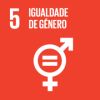
Thesis Reveals Approval Without Learning in Schools in Maranhão – Brazil
In his thesis, Altemar Lima explores limitations in basic education in Maranhão, Brazil, prompting reflection on social inequalities.
Sustainable Development Goals (SDG)







Children in primary education from municipalities along the Carajás Railway Corridor, in the state of Maranhão, Brazil, are progressing through school years without acquiring the necessary basic knowledge. This finding is the starting point of the PhD thesis in Education by Altemar Lima, defended on 1 July at Lusófona University - Lisbon University Centre. The central question of the research is: what are the explanations for school failure in the Carajás Railway Corridor?
This mixed-method, exploratory research focused on the Railway Corridor in the state of Maranhão. Supervised by Manuel Tavares, its objective was to uncover the causes of school failure, based on the perspectives of Municipal Education Directors, the primary subjects of the study. The research is grounded in the sociology of education, drawing on historical-dialectical materialism, Southern epistemologies, and, complementarily, world-systems theory.
The author describes the educational model as “exclusive inclusion”, which, while universalising access to public primary schools, denies socially legitimate knowledge to disadvantaged communities through approval without proficiency. Automatic progression is seen as a form of selectivity that masks school failure. Although it promotes access, it does not ensure learning. National assessments, such as SAEB – the National Basic Education Assessment System, are often instrumentalised for local political interests, concealing the reality and compromising the future of many pupils from underprivileged backgrounds.
The thesis highlights that socioeconomic factors such as child labour, unemployment, hunger, and other adversities directly impact academic performance and learning. Drawing on decolonial theory and world-systems analysis, it examines how public schools along the Railway Corridor contribute to the reproduction of social inequalities and denounces the mineral-export enclave as a vector of exclusion.
The study identifies three dimensions of school failure: the sociological (historical exclusion from access to education), the epistemological (delegitimisation of indigenous knowledge), and the pedagogical (uncritical and decontextualised education). Inspired by authors such as Paulo Freire, Boaventura de Sousa Santos, Wallerstein, Quijano, Manuel Tavares, António Teodoro, Ana Benavente, Jessé Souza, among others, Altemar Lima advocates for a decolonial education that values local knowledge, addresses structural racism, and challenges the logic that perpetuates social inequalities.
In addition to exposing school failure along the Carajás Railway Corridor, the thesis seeks to reignite debate on the issue and its new forms, both within academic settings and in schools.
The work serves as both a warning and an invitation to reflect: school failure, although seldom discussed, remains a stain on education for disadvantaged communities. It is “an old issue and a new problem”, disguised by high approval rates but revealed by low proficiency levels.
Related Courses
Other News
- Great Artists on Campus 4: ULusófona launches new edition with Ana Salazar
- ULusófona researchers stand out in World Ranking of Scientists
- New Article Explores Ethical Decision-Making in Narrative Inquiry
- FilmEU opens applications for Changemaker programme - Pitching for Change
- The Impact of AI on Future Jobs in Film and Media










